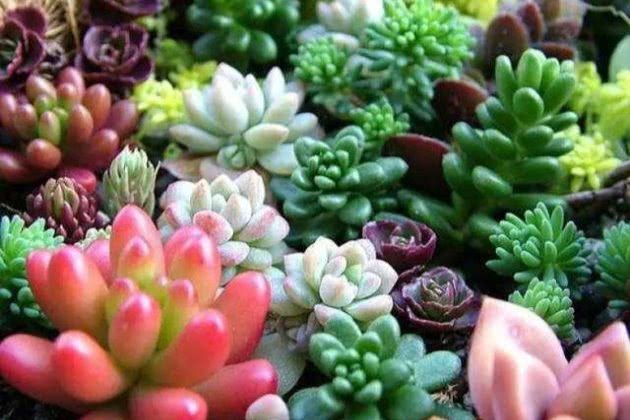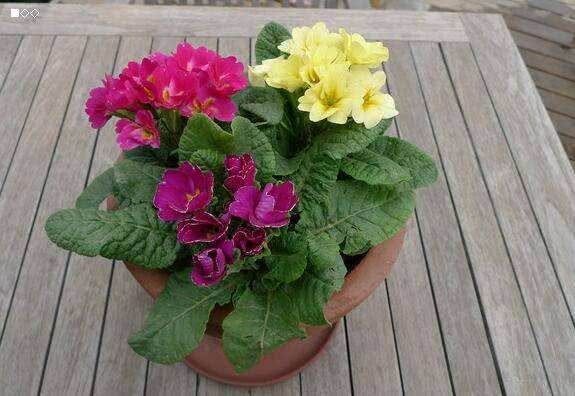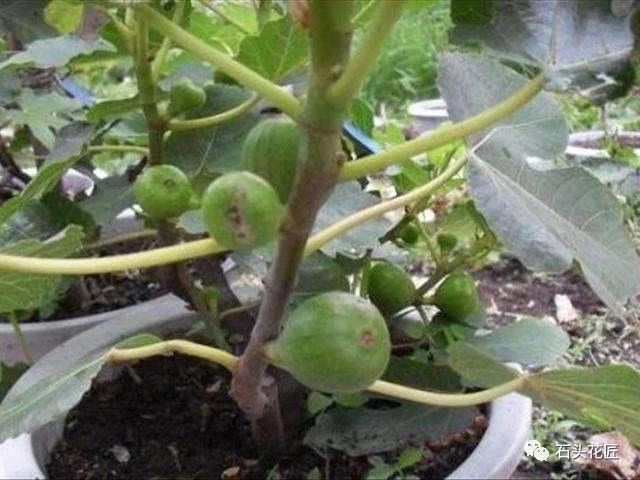In this step, flowers with yellow leaves and rotten roots no longer grow faster than others.

Growing flowers is the favor of many netizens, but for many novice flower lovers, it is really very difficult to raise a pot of flowers, because we have to face many uncertain factors from the beginning of growing flowers and buying flowers.
So what do we need to pay special attention to when growing flowers? Then we should start with the planting of flowers, the most important of which is the choice of soil, which is the foundation of the growth of flowers and plants. If the soil does not meet the growth needs of plants, then it will cause a series of problems of improper conservation because of soil discomfort. So, if we choose the right soil at that moment, it will be of great benefit to the future conservation process of flowers and plants.
Since soil is so important, which soil should we prefer to cultivate flowers and green plants? In fact, for different flowers and green plants, the choice of soil is also different. For example, the soil can be divided into acidic, neutral and alkaline, some flowers like acidic soil, some flowers like neutral soil, and some flowers can only grow in alkaline soil.
We often find that the flowers cultivated by some florists never have the problem of rotten roots and yellow leaves, and the important strange thing appears in the soil. It is no exaggeration to say that if a flower chooses the right soil, then its growth rate can also be greatly increased, if you have to make a speed comparison, it may be ten times or even higher!
So when we cultivate plants and flowers, we should first understand what kind of soil properties these plants like. Choosing the right soil properties is the first step for their excellent growth, and this effect is almost twice the result with half the effort! For example, the growth of camellias prefer acidic soil, and so do gardenia. If you make the wrong choice, you can only be very sorry.
In addition to the acidity and basicity of the soil, the fertility and drainage performance of the soil are also important factors that have a positive effect on plant growth. It is certain that almost all soil-cultivated plants like this kind of soil, and some viscous soils with poor drainage, poor air permeability or too barren are extremely disadvantageous to the growth of plants.
So what kind of soil is fertile, loose, good drainage soil? In fact, to judge whether these conditions are met, we can also judge the results from the observation of the soil.
The soil rich in organic matter is very good for the growth of plants. Whether the soil is rich in organic matter or not is a question of the content of nutrients such as nitrogen, phosphorus and potassium. Generally speaking, the soil with more fallen leaves in the forest is also rich in organic matter, especially those black soil. Secondly, the soil in some places where animals often move around is also rich in organic matter, because the content of animal feces is also relatively high.
In other words, our common rotten leaf soil and garden soil are very good, with rich organic matter fertility soil.
Loose soil is essential for the growth of plant roots. Any impervious soil will hinder the growth of plants, because the roots of plants not only need to drain and absorb water, but also need to breathe, and the oxygen in the airtight space is very limited, which is extremely difficult for plant growth.
So what kind of soil has the characteristics of looseness and ventilation? Sandy loam, for example, is very good, with countless drainage channels and air vents needed for plant growth.
Therefore, a wise florist can always find some soil in which various growth conditions can weigh each other. For example, a kind of plant requires very high drainage performance, air permeability and fertility, so we can use rotten leaf soil + sandy loam soil or add some bark, ceramsite and other things to meet the growth needs of the plant.
So what will be the performance of alkaline soil to help us make a judgment? For example, easy to harden, easy to chapped, easy to accumulate water when poured through water, heavy soil stickiness and so on, these are the inherent characteristics of alkaline soil.
Of course, when we use soil, we usually need to sum up a long period of experience. in fact, it seems that the soil used by others to grow flowers is mediocre, and the skills can not be developed overnight. We novice flower friends should be good at summarizing in order to make faster progress!
These are some of the skills and methods of judging the soil selection of flowers and plants introduced to you by Hua'ergu. I wonder if everyone has ever looked for soil for breeding when they are usually growing flowers. How do we all find the right soil? You are welcome to leave a message to share!
- Prev

Flowers like to eat banana peels and drip water after eating green leaves.
Banana contains a variety of trace elements and vitamins, can help us relax muscles, make people physically and mentally happy, and have a certain weight loss effect, is a very common fruit in our daily life. Bananas are usually thrown away after eating.
- Next

This kind of fruit buries a seed, pinch a branch and grow into a potted plant for a year. 100 fruits will hang in the coming year.
With the improvement and improvement of people's living standards, more and more people like to raise some flowers and plants for their families, such as orchid, rich bamboo, crab claw orchid and triangular plum are very common family potted plants. It's okay to keep them at home.
Related
- Wuhan Hospital Iron Tree Blooming Result Was Instantly Frightened by the Gardener Master
- Which variety of camellia is the most fragrant and best? Which one do you like best?
- What is the small blue coat, the breeding methods and matters needing attention of the succulent plant
- Dormancy time and maintenance management of succulent plants during dormancy
- Minas succulent how to raise, Minas succulent plant pictures
- What are the varieties of winter succulent plants
- How to raise succulent plants in twelve rolls? let's take a look at some experience of breeding twelve rolls.
- Attention should be paid to water control for succulent plants during dormant period (winter and summer)
- Watering experience of twelve rolls of succulent plants
- Techniques for fertilizing succulent plants. An article will let you know how to fertilize succulent plants.

